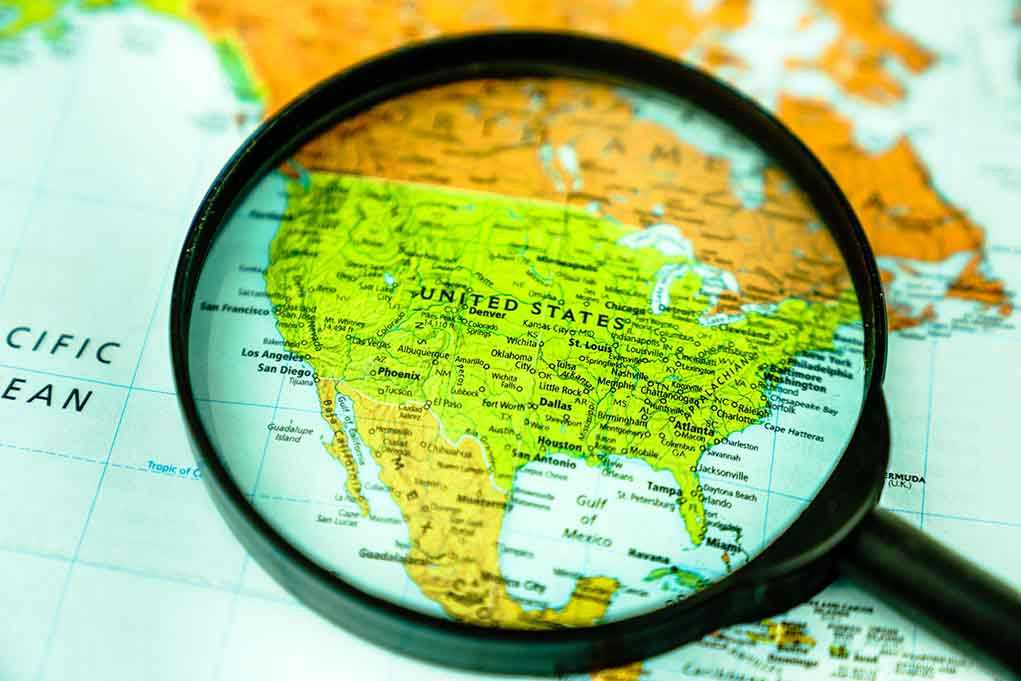
Canadians now say the biggest threat to their country isn’t China, Russia, or North Korea—it’s the United States, their top trading partner and supposed closest ally.
At a Glance
- A new Pew survey finds 59% of Canadians view the U.S. as their nation’s greatest threat—up from just 20% in 2019.
- Despite this, 55% still call America Canada’s “most important ally,” revealing a fraught and deeply ambivalent relationship.
- Trump-era tariffs, annexation rhetoric, and ongoing trade disputes fuel Canadian distrust.
- Public pressure is mounting on Canadian politicians to push back against U.S. influence and policies.
Canadians Name America Their Top Threat—And Top Ally
Imagine the scene: you’re sipping Tim Hortons coffee in Toronto, and the headline flashes—majority of Canadians now fear the United States more than the likes of Vladimir Putin or Xi Jinping. According to the Pew Research Center’s latest global survey, 59% of Canadians now cite the U.S. as the “greatest threat” to their country. That’s not a typo—barely six years ago, the number sat at a paltry 20%. What happened? Canadians were once famous for their easygoing, roll-with-the-punches attitude, especially where their southern neighbor was concerned. But trade wars, repeated threats of tariffs, and a president who once mused about turning Canada into the “51st state” seem to have snapped something in the national psyche. It’s like watching the world’s nicest roommate finally lose patience after years of dirty dishes and loud parties next door.
The irony is as thick as maple syrup: Canadians now see the U.S. as both their most important ally and their greatest threat. Let’s face it, this is the diplomatic equivalent of sleeping with one eye open. Even as 55% still call America their most important partner, public trust has evaporated. It’s not just about politics. It’s about sovereignty, economic survival, and the creeping anxiety of having a neighbor who can’t decide whether to lend you a cup of sugar or slap a tariff on your wheat. Conservatives down here might say: welcome to the club, Canada. We know a thing or two about being undermined by our own supposed “allies”—just look at how woke bureaucrats, globalist elites, and the open-borders crowd have treated the American taxpayer lately.
Trump-Era Policies and the Erosion of Trust
Let’s not sugarcoat it: the shift in Canadian opinion didn’t come out of nowhere. During the Trump administration, Americans watched as tariffs were slapped on Canadian steel and aluminum, triggering a tit-for-tat economic brawl. Then came talk of annexation and the “America First” agenda, with Canadian sovereignty often cast aside like yesterday’s news. According to Pew’s senior researcher Janell Fetterolf, “Canada stands out. The change in views toward the US here has been significant.” And Canadians haven’t forgotten. Every new round of trade threats, every time fentanyl is linked to the border or NAFTA’s replacement is questioned, the trust erodes a little more. This is what happens when a neighbor acts like a bully but expects you to still mow their lawn.
The numbers don’t lie. In Mexico, the same survey revealed 68% now see the U.S. as the greatest threat. So much for the North American family reunion. Skepticism isn’t just about military might—it’s about economic leverage, unpredictability, and the sense that, under the wrong leadership, the U.S. could turn on its friends at the drop of a hat. For conservatives who have warned about the dangers of global instability and putting America’s interests second to globalist schemes, this is a wakeup call. When your closest allies start questioning whether you’re a bigger danger than Russia or China, it’s time to rethink some policies—and maybe stop treating border security and fair trade as punchlines instead of priorities.
Implications: The Cost of Eroded Trust and Sovereignty
Short-term fallout is already clear: Canadian politicians now face growing pressure to diversify trade and assert their independence from Washington. The days of quietly going along with whatever the U.S. demands are over. If these numbers hold, expect to see more Canadian leaders grandstanding about “standing up for Canada” and less willingness to play junior partner in future trade deals. On the economic front, businesses in both countries could see more red tape, more tariffs, and less certainty. Cross-border communities—those with family on both sides—may find travel and work more difficult if the political climate keeps souring.
Long-term, the biggest risk is to North American integration itself. If Canada starts looking for new partners or puts defense cooperation on ice, both nations lose. The auto industry, agriculture, and energy sectors—all vital to both economies—are most vulnerable to any trade disruption. With nationalism rising and public trust in short supply, leaders on both sides will find it harder to sell new agreements or joint initiatives. For Americans who still believe in strong borders, a sovereign nation, and trading with partners who respect us, the lesson is simple: treat your allies with respect, or risk finding yourself alone in a world that’s not getting any friendlier. Maybe, just maybe, those in power ought to worry less about appeasing globalists and more about keeping faith with the citizens—and the neighbors—who actually matter.

















